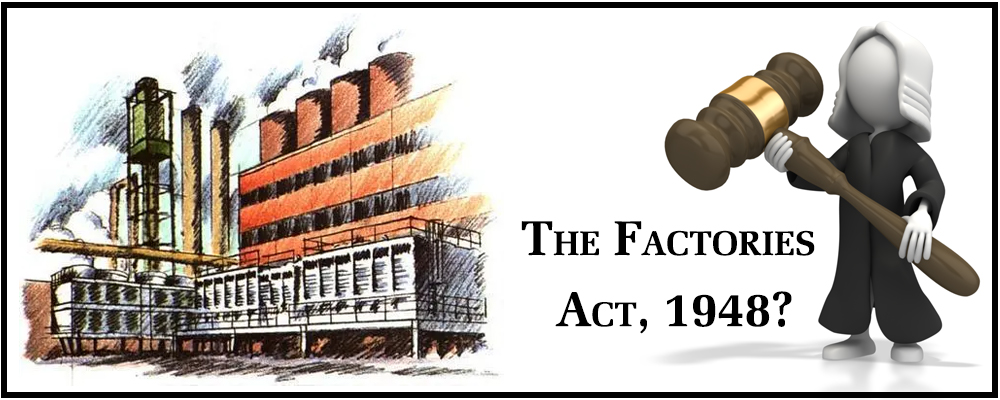
Though there are enough similarities between the Shops and Establishments Acts, and the Factories Act, 1948, there are certain differences as well. This act reveals all the differences between the two Acts. In this article, we shall understand how the factories act and shops and establishments act differ.
The Shops and Establishment Act is a regulatory act that governs the proper functioning and conduct of businesses in the country. Each state in India has its own rules and regulations to govern this Act. Whereas, The Factories Act, 1948 is social legislation enacted for the occupational safety, health, and welfare of workers at manufacturing establishments.
Factories Act, of 1948 Aim
The Act aims to safeguard the interests of the workers, protect them from exploitation, and ensure their hygiene, safety, and welfare at their place of work. The Factories Act, 1948 obligates the occupier of the factory, and also the factory manager to certain duties and responsibilities. “Occupier” as per the Act means the owner of the factory. There were ample amendments made to the act, especially owing to the hazardous nature of the tasks performed by the owners at the factory or manufacturing premises.
Shops and Establishments Act Aim
This Act ensures the protection of the rights of both employees and employers. It governs various elements like the working conditions, the working environment, safety, health, maternity benefits and leaves, and the holidays and leaves of the employees. It also ensures the protection of the rights of children against child labour. The Shop Act License ensures that youngsters and other employees are not burned with huge working hours and harsh working conditions.
The Major Differences Between the Factories Act, 1948 and the Shops and Establishments Act
| The Shops and Establishment Act | The Factories Act, 1948 |
| The Shops and Establishment Act applies to commercial establishments that include entities such as banks, restaurants, residential hotels, shops, entertainment premises, educational institutions, etc., | The Factories Act, 1948 applies to factories or manufacturing units |
| It is an Act regulated by the state governments. | It is an act rolled out by the central government. |
| Each Indian state customizes its law under this Act. Hence, each state has its own rules and regulations for all establishments state-wide. | The Same rules and regulations apply to factorial entities throughout the country, as it is a national Act. |
| The Shops and Establishment Act applies to shops, or commercial establishments where any form of trade of goods takes place, or any form of service is provided. | The Factory Act applies to a factory, which is a place where the manufacturing of goods takes place. |
| The establishments in this Act are associated with business entities that are usually small in size. | A Factory Act is associated with industrial sites that usually consist of buildings and machinery. |
| The administrative or back-end offices situated outside the premises of the factory will be covered by the provisions of The Shops and Commercial Establishments Act. | If the activities are carried out within the boundaries of the factories, then all the employees will be covered under The Factories Act itself. |
| The Establishment Act governs the wages, salaries, maternity benefits, and other work-related conditions of the employees. | A Factory Act assists the national policies with the respect to occupational safety and health, efficiency, and well-being of workers. |
| The Establishment Act cannot serve as a Factory Act | A Factory Act can perform as an Establishment Act |
The Bottom Line
This article makes it clear that both acts work towards achieving better working environments for the employees, and the workers. The Acts aim to make working at business establishments and factories easier. If you aim to establish a business establishment or set up a factory, you should obtain a license.
Financial and Business expert having 30+ Years of vast experience in running successful businesses and managing finance.





